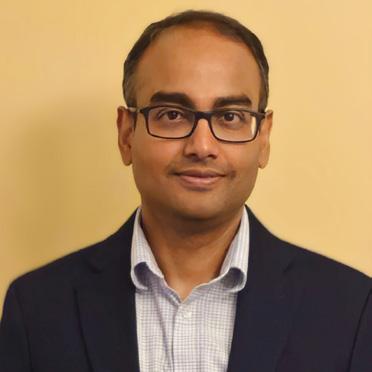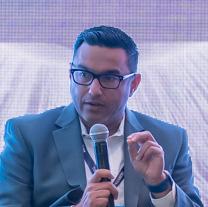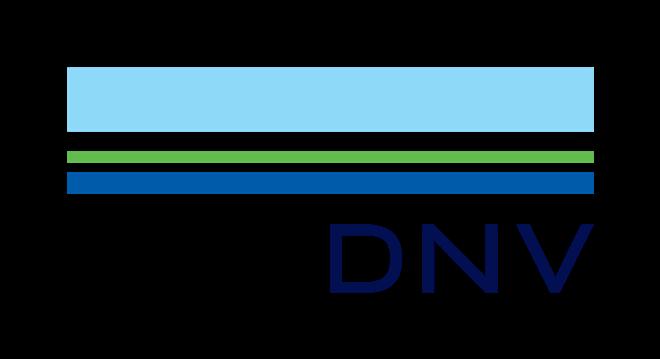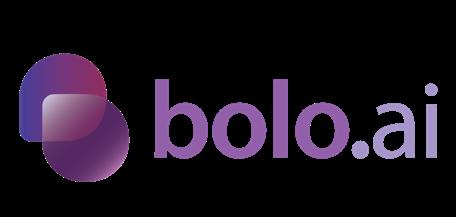






As CEO of Cavendish Group, I’m proud to introduce the third edition of Future Digital Twin & AI (USA), held once again in Houston, Texas – the heart of innovation and excellence in the global energy industry.
This year’s conference marks a defining moment in our sector’s journey toward digital transformation. Not long ago, digital twins and artificial intelligence were considered by many to be “nice-to-have” technologies. Today, they are increasingly seen as foundational to the future of oil and gas. This transformation was clearly reflected in the conversations, collaborations, and cutting-edge presentations shared throughout the event.
We are immensely proud to have produced a conference that not only offers transparency on the challenges and opportunities ahead, but also deepens our understanding of how digital twins are evolving into systems of orchestration – technologies that are driving meaningful change at scale. From optimising field operations and journal activity to enabling autonomous workflows and improving well integrity monitoring, the potential is enormous.
Technologies like agentic AI are no longer experimental; they are delivering real results. They enable digital twins to operate autonomously, drive operational efficiency, and most importantly, enhance safety and sustainability. This is automating with purpose, fundamentally improving the speed and quality of decision-making across the value chain.
This year’s event placed special emphasis on the integration of AI advancements with digital twin technology, highlighting their combined role in the broader energy transition. Attendees were treated to rich discussions and actionable insights on topics including Generative AI, Reality Capture, LLMs, Integrated Value Chains, Computational Power, 3D Rendering, and the regulatory frameworks shaping these innovations.
With a growing community of leaders from operators, oil service companies, technology innovators, and institutions Future Digital Twin & AI continues to serve as a catalyst for industry-wide transformation. The sessions on Open Collaboration, Energy Transition, and Innovation were standout highlights, demonstrating a shared commitment
to working collectively towards a digitally optimised and sustainable future.
I want to express my sincere thanks to our sponsors, partners, and the exceptional advisory board whose vision and guidance have been instrumental in shaping this event. And most of all, thank you to our delegates — your engagement and curiosity are what make this platform thrive.
As we look forward, it’s clear that the synergy between human ingenuity and advanced technology will define the next chapter of energy innovation. Future Digital Twin & AI (USA) is more than a conference; it is a movement toward purposeful, intelligent, and sustainable transformation. We look forward to continuing this journey with you.
Sincerely,
Adam Soroka CEO of Cavendish Group International

Digital twins and generative AI technology are now showing their worth across the energy industry, by boosting output and efficiency, improving decision-making and freeing the workforce from mundane tasks, speakers told the Future Digital Twin and AI Conference USA, held in Houston on May 29th 2025.
The event attracted experts from the oil and gas industry and beyond to discuss the sector’s digital transformation, with a focus on advances in AI and the energy transition.
Organised by Cavendish Group International, the conference brought together energy and technology professionals and innovators from 144 organisations, creating a vibrant forum to discuss the opportunities and challenges presented by AI and digital twin technology, both of which are now becoming firmly embedded in the industry’s DNA.
Innovators and thought leaders on stage at the event represented diverse organisations and institutions, including bp, Chevron, DNV, Dow Chemicals, ExxonMobil,
Motiva, Occidental Petroleum, Royal Dutch shell, Siemens Energy, Schneider Electric, and Wood to name but a few.
Among the major themes in Houston were the way digital twins and AI are now clearly being shown to improve the efficiency and reliability of upstream and refining operations, the continuing efforts to gather, clean up and protect the shared data on which these new technologies depend, and the need to put people at the heart of a process that is transforming corporate culture.
Adam Soroka, CEO of Cavendish Group International, said digital twins and AI were only recently considered by many as a nice to have technologies, but the event had shown they were now becoming foundational within the oil and gas industry
“We are immensely proud to have produced a conference that not only offers transparency on the challenges and opportunities but offers understanding on how the focus has shifted towards the role of digital twins as systems of orchestration within the industry,” he said.
Technologies like agentic AI now enable digital twins to work autonomously, optimize journal activity or well integrity monitoring and play a huge impact in driving operational efficiency, most importantly safety and sustainability.
“This is automating with purpose, fundamentally improving the speed of decision making,” Soroka said.
Shane McArdle, CEO of Kongsberg Digital and Chairman of the Conference Advisory Board, agreed that the digital twin landscape was evolving quickly.
“Much of the talk is not even really about digital twins anymore, except as an enabling mechanism. Now we’re talking more about the industrial work surfaces where the actual work is happening, built on digital twins and AI,” he said.
McArdle said Future Digital Twin and Generative AI Conferences around the world were providing essential arenas for those at the cutting edge of the digital transformation to exchange information.
“I strongly believe that we have grown as an event because it brings together such an engaged community of industry leaders. What began as a vision for cross-industry collaboration has become a trusted space for knowledge sharing and open conversations, he said.
“Even though we talk about technology at these conferences, it’s really about people at the core. An arena like this is essential for us to learn from and be inspired by each other – in both our successes and mistakes.”

Here’s what some of the experts said at Future Digital Twin and AI (USA) 2025:

SHANE MCARDLE
CEO, Kongsberg Digital: “Winning organisations don’t focus on data accuracy and quality alone. They look at how information flows fluently –across teams, through decision-making circles and between systems. That’s true digital fluency.”

DITI SOOD
Co-Founder & CEO, Bolo AI (section of takeaway quote): “If you attack problems which are very high frequency, high friction, these are low hanging fruit that are really good wins.”

SETH TAYLOR
Digital Twin Advisor and Technical Manager, Chevron: “A digital twin has to deliver tangible value for the end user. How an organization defines and prioritizes value should be carefully considered as part of the digital twin strategy..”

AMIT KUMAR
Data Science Technical Project Manager, ExxonMobil: “My goal is to build an agent that can think, act and reason like a production engineer. We’re not there yet, but whatever we can do to move towards that goal is going to be incredibly helpful and add value”

TARUN DHALL
Lead, Digital Offerings, Compressions Business, Siemens Energy: “I’m excited about Gen AI and AI in general, because the pace of development is much faster there – that means we are able to bring some of those improvements into the technology used in the development of digital twins.”
300+ registered attendees with deep industry experience 17
organizations sponsors & exhibitors
44% likely to attend event again 86% rated the usefulness of the event as excellent or good 95%
Content Sessions 14 would recommend the event to others 95%

As AI becomes more closely integrated into digital twins, it will increasingly feed into decision-making processes.
Marty Gonzalez, Innovation & Technology Principal, bp, told the event:
“The oil & gas industry is actively deploying twins in areas like maintenance planning, inspection, and process safety, including sim ops. What I really see a call for now is scenario evaluation and being able to guide actions in real time –intervention intelligence, where you want to know not only why something is happening, but what you can do about it. As digital twin and AI technologies intersect, it will get easier to provide these types of insights.
Agentic AI offers huge opportunities to speed up routine tasks and free up people for other tasks. The industry is already deploying AI to carry out complex, vitally important tasks such as accurately categorizing thousands of safety incidents much faster than a human could.
Amit Kumar, Data Science Technical Project Manager, ExxonMobil said the possibilities were endless.
“My goal is to build an agent that can think, act and reason like a production engineer. We’re not there yet, but whatever we can do to move towards that goal is going to be incredibly helpful and add value,” he told the event.
Lifecycle management
is already a reality
Digital twins are present and increasingly standardized in many aspects of energy projects, from first ideas through design, engineering, commissioning, operations and predictive maintenance to recycling, according to Matthias Boelke, Chairman of the Industrial Digital Twin Association (IDTA).
“Lifecycle management using digital twins is a reality. We have efficient solutions, and the loop can be closed now.” he told the event.
Know what you want to achieve with the technology
When developing a digital twin, you need to be very clear on what it will be used for, according to Tarun Dhall, Lead, Digital Offerings, Compressions Business, Siemens Energy
“For a performance twin, your requirements are different from a design twin or a reliability twin. Having clarity on your use case allows you to accurately identify what tools you need to get to that point,” he told delegates in Houston.
A digital twin should not just be a grand data integration project, it has to deliver tangible value for the end user. How an organization defines and prioritizes value should be carefully considered as part of the digital twin strategy, according to Seth Taylor, Digital Twin Advisor and Technical Manager, Chevron.
“Value for end users of digital twins or AI could look very different than value as defined by leadership. In some parts of a business, improving worker efficiency may not be valued in the same way as directly unlocking new barrels or increasing throughput.
“Discussions need to be had in advance over whether saving a person’s time and removing a repetitive task, which adds up to a lot of savings over a period of years, is prioritized in the same way as other manifestations of business value – those can be hard discussions to have,” Taylor told the conference.
You still need to have a good business case, however seductive the technology may be, according to Diti Sood, CoFounder & CEO, Bolo AI, which has developed an AI-powered knowledge platform.
“If you attack problems which are very high frequency, high friction, these are low hanging fruit that are really good wins. Areas of opportunity are use cases where you have a lot of data, but a lot of it is unstructured data – then you are able to use AI to glean insights that would not have been possible before,” she told the event.

It’s about getting the right people, as well as the technology
Subject matter experts remain crucial to shaping the way data is used in digital twins, but they are in increasingly short supply in some areas of the industry, Jeff Ackerman, Business Development Director, Oil & Gas, Sand Technologies, told the event.
“There has been a lot of knowledge drain within the industry, particularly since the Covid pandemic – people who understand how processes actually work, or how data is contextualized within a system, which is what you’re often trying to programme into larger models. So, the human element is something to think about in addition to the technology – how do you access the right people who can help you build that into the modelling?”
“The key to having any kind of digital twin ecosystem is that all of the components play well together”, according to Justin Piwetz, Asset Management Lead, bp, told the event.
“A vendor or supplier that has a black box and doesn’t allow you access into the systems is problematic. You want to make sure you have an interface capable of reaching between these systems, so you know the origin of your data and that data stays fresh and relevant,” he told the event
Swapna Setty, Head of Data Management, at Occidental Petroleum told the event that investment in a good data strategy and management is crucial:
“To create a digital world you need to develop an enterprise data strategy for data ownership, data protection and data quality. Having a strategy is a good start, but then you also need the right execution process. That evolution starts with investment in data maintenance,” she said.
Connecting several pieces of data that haven’t been integrated before can add value compared to those data sets remaining in silos.
“Thoughtful integration can expose new insights and collaboration opportunities not previously realized, and that’s really where the magic in digital twin lies. At Chevron, we are seeing huge value in unlocking actionable insights for many of our major complex processing units around the globe,” Chevron’s Seth Taylor told the event.
Don’t wait for data to be perfect before taking advantage of what digital twins and AI have to offer, according to Shane McArdle, CEO of Kongsberg Digital.
“People say we’ve got to fix all our data before we can derive value. I don’t think that’s a good strategy - we are never going to have perfect data in this industry. We’re chasing perfection when we should be chasing progress. But we can still start to derive value from industrial data through digital twins and AI today, while designing for the behaviours we want to see in the next five years,” he told delegates.

“I very much enjoyed the Future Digital Twin event. The quality of speakers, and panelists was outstanding, and the focus on Digital Twins and Data made it a must go event. The networking sessions, too, were very valuable, and allow for targeted useful discussions”
KRISHNAN SANKARANARAYANAN Director, Digital Transformation, SABIC
The Future Digital Twin & AI event was a convergence of cutting-edge innovation, featuring a thoughtfully curated program that explored transformative themes such as intelligent systems integration, predictive analytics, and the evolving role of AI in digital twin ecosystems. I had the privilege of contributing as a panel speaker, engaging with a high-caliber group of experts and thought leaders whose insights elevated the discourse. The event stood out for its depth, diversity of perspectives, and the exceptional quality of participants driving the future of digital transformation.”
MARK WRZYSZCZYNSKI Program Manger, Oxy
“I felt the Digital Twin and AI conference hit the agenda out of the park. Knowledgeable and engaging speakers who gave real life examples of challenges and how they overcame them. Really actionable stuff.”
JUDY MOSES
Reservoir Management Director, Americas,
Chevron
“Such a great conference to hear from and meet a variety of people working with Digital Twins and AI. Content strikes the right balance of including both technical talks and product talks and lots of good networking opportunities”
VITOR LOPES PEREIRA
Regional Sales Manager, Systems & Digital Twins, Ansys
This is my second year participating in the Future Digital Twin event in Houston and here are some observations:
Consistency and expansion: There is an ecosystem of people, business, and activities in continuous growth, showcasing how this space is very real and rapidly progressing.
Hyper-scaling technologies like AI, HPC, AR/VR are coming together, driving innovation, and accelerating the pace in which Digital Twins are adopted and generating ROI.
Workforce and culture development can no longer ignore the Digital Twin reality and the exchange of experiences in this forum is a critical element of collective success.
Energy transition has shifted focus towards Energy integration between fossil fuels and alternative sources. Digital Twin enabling techniques are at the forefront of operationalizing these systems for commercial application.
UDAYAN VYAS
Connected Worker, AI Lead, Chevron
While my focus is talent strategy, I found the Future Digital Twin conference to be enlightening in rethinking the importance of quality and accurate data, its structure, and communicability when thinking about the technology we need to achieve our talent goals.
Great people, great agenda, great sessions… certainly worth the investment.
TARUN DHALL
Lead, Digital Offerings, Compressions
Business, Siemens Energy

“ The future digital twin and AI conference is a remarkable opportunity to learn from industry experts. I loved the conversations on how to leverage digital tools like digital twins and AI as a vehicle for transformative change. The key differentiator of this conference is the tactical clarity and depth each session provides which can be applied in your own respective digital journey. “
LISA WILLIAMS
Sr. Director, Global Operations Talent Strategy and Employee Experience, DOW
“Excellent platform for users and technology providers to talk about the challenges that Digital Twin and AI face in the O&G industry today. Topics ranged from finding quality data in an economy of data abundance to fostering trust with AI driven decision making. Hope to see this collaboration grow in the future!”
PETER WJ BAXTER Vice President of Operations at VisCo
Future Digital Twins & AI Houston was an genuinely fantastic event. A great gathering of thought leaders and other leaders from across the industry there to share ideas and learnings. For visCo it was a great place to share our vision for the future of digital twins and discuss those ideas with the industry.
SAMUEL PARRA
NA Manufacturing Integration Lead (GEC/DI)
The event was an excellent mix of industry experts and leaders, providing a fantastic opportunity to stay updated on the latest advancements in Digital Twins and other cutting-edge technologies. The one-day format was particularly effective, as it kept everyone engaged and made sure every minute was utilized for networking and meaningful interactions. Thanks again for organizing such a valuable event.
DR. MARTIN R. GONZALES
Innovation and Technology Principal, bp
Nina Reiersgaard, Chief Engineer Data & Analytics, Equinor
Dr Martin R. Gonzalez, Innovation & Technology Principal, bp
Dr Chris Cooper, Executive Advisor, Group Digital & Cyber Security, ADNOC
Athicha Dhanormchitphong, Digital Realities Ecosystem Architect, ExxonMobil
Ram Seetepalli, Director, Data & Analytics & Digital Innovation, Motiva Enterprises LLC
Rolf Einar Saeter, Global Digital Twin Innovation Lead, Shell
Udayan Vyas, Connected Worker, AI Lead, Chevron
Reza Khaninezhad, Data Science Manager, Apache
Ram Nutakki, Digital Transformation Manager, INEOS
Adam Williams, Senior Manager, Engineering Technology & Design, Motiva Enterprises LLC
Ashraf Wardeh, IT Director, DAC Digital Program, Oxy
Justin Piwetz, Asset Management Lead, bp
Seth Taylor, Smart Facilities Manager, Chevron
Shane McArdle, CEO, Kongsberg Digital

Swapna Setty, Director, Enterprise Data Management, Oxy
Justin Piwetz, Asset Management Lead, bp
Michael Hotaling, Executive Advisor, ExxonMobil
Ram Seetepalli, Director, Data & Analytics & Digital Innovation, Motiva Enterprises LLC
Julie Thyne, Global Improvement Director, Dow Chemicals
Harvinder Singh, Platform & Services Manager, Knowledge Management, bp
Detlef Hohl, Chief Computational & Data Science, Shell
Dr Martin R. Gonzalez, Innovation & Technology Principal, bp
Udayan Vyas, Connected Worker, AI Lead, Chevron
Amit Kumar, Data Science Technical Project Manager, ExxonMobil
Judy Moses, Reservior Management Director, Americas, Chevron
Apurva Bedagkar-Gala, PhD, Senior AI Solutions Researcher, Shell
Lisa Williams, Senior Director, Operations Talent Strategy & Employee Experience, Dow Chemicals
Krishnan Sankaranarayanan, Director, Digital Transformation, SABIC
Seth Taylor, Digital Twin Advisor and Technical Manager, Chevron
Sumeet Trehan, Principal, AI-ML, ExxonMobil
Adam Williams, Senior Manager, Engineering Technology & Design, Motiva Enterprises LLC
Stacia Fosi, Principal Data Manager, Production & Projects, bp
Raj Rapaka, Business Transformation Advisor, ExxonMobil
Adam L Ballard, Technology Advisor, Autonomous Field, Hess Corporation
Mark Wrzyszczynski, Program Manger, Oxy
Samuel Parra, NA Manufacturing Lead, BASF
Reza Khaninezhad, Data Science Manager, Apache
Travis Thomas, VP, Digital Completion Solutions, NOV
Jackie Behles, Ph.D, Analytical Sciences Team Leader, Chevron Phillips
Karly Ott, Emerging Digital Technologies Analyst, ConocoPhillips
Amit Jain, Advisor, Simulation, Chevron
Afonso Guimaraes, R2R Business Transformation Lead, Marathon Oil Corporation
Shane McArdle, CEO, Kongsberg Digital
Keshav Sundaresh, Global Director of Product Management, Altair
Vitor Lopes, Digital Twin Senior Product Sales Manager, Ansys
Ove Heitmann Hansen, Senior Principal Consultant, DNV
Adi Bhashyam, SVP, North America Sales, C3AI
Jeff Ackerman, Business Development Director, Oil & Gas, Sand Technologies
Matthias Boelke, Industrial Digital Twin Association (IDTA)
Shirley Ike, Global Director, Digital Consulting, Wood
Dr. Gerhard Koch, Chief Software & Product Officer, Siemens Energy
Nadun Muthukumarana, CEO, V2T • Diti Sood, Co-Founder & CEO, Bolo AI
Renner Vaughn, CCO, FutureOn
Peter WJ Baxter, VP Operations, Visco
Meaghan Snethlage, Director of Client Development, VEERUM
Sanjay Barnwal, VP & Business Head, Oil & Gas, Chemicals & CPG Industries, L & T Technology Services
Tarun Dhall, Lead, Digital Offerings, Compressions Business, Siemens Energy
Michael-Paul Jenkins, Enterprise Sales, Gecko Robotics










